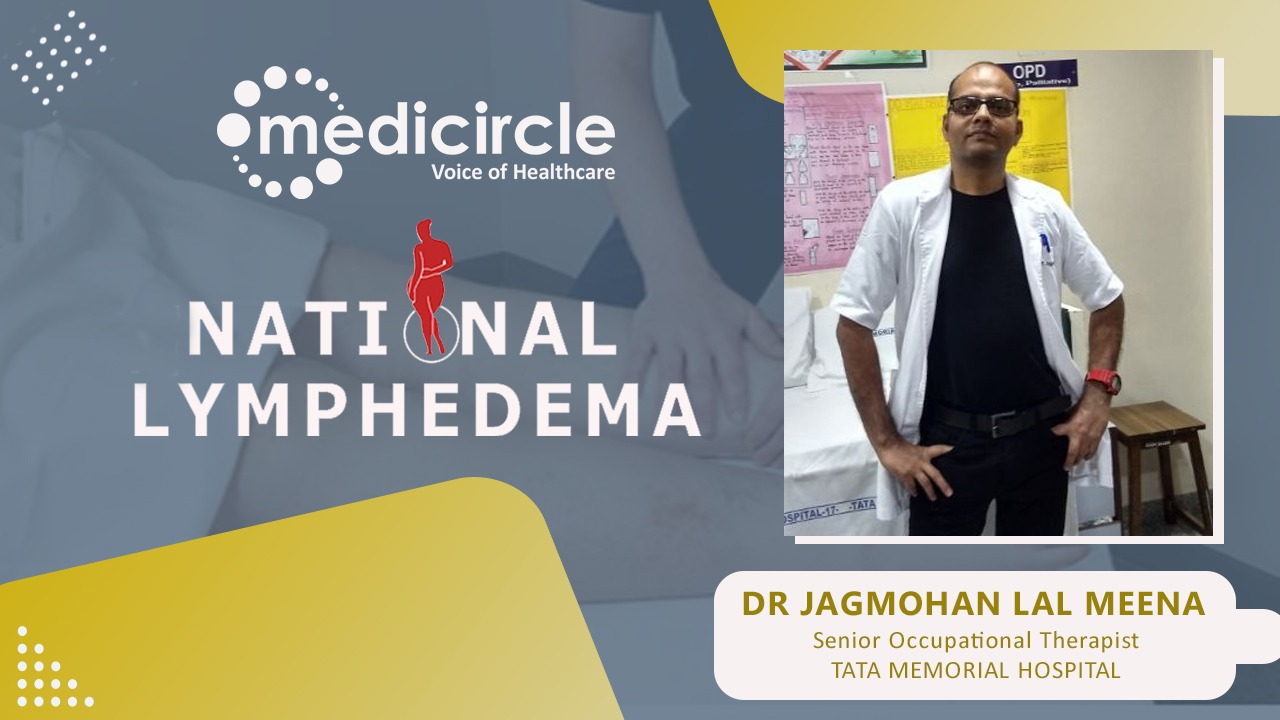Due to lack of public awareness and medical provider education, patients suffering from lymphedema often go undiagnosed, and once they are diagnosed, they are still frequently unable to access care because of the not so pocket-friendly doctor-prescribed compression garments and devices. Compression for lymphedema is what medication is for many other diseases – indispensable. Through the Lymphedema series, we aim to create knowledge on the subject directly through the experts so that people get a much transparent view about the condition.
Dr. Jagmohan Lal Meena is a BOT, MOT Certified Lymphedema Therapist (UK and USA) and Consultant Lymphedema Specialist. He is currently working with Tata Memorial Hospital Mumbai in the Rehabilitation Service Department. Many articles written by him are published in leading newspapers & the Indian Journal of Neurotherapy. His article on “Scope of Occupational Therapy” got published in the Employment Newspaper (under the Ministry of Information & Broadcasting, Govt. of India). He has delivered lectures like "Current Concepts in Upper Limb Lymphedema" at National Hand Therapy Conference and was invited by NIOH (under Govt. of India) as a faculty for a lecture on Full Lymphedema Management.
Role of Surgery and Complete Decongestive Therapy in Treatment of Lymphedema
Dr. Jagmohan informs, “Surgery is not the first option for treatment of lymphedema. Complete Decongestive Therapy (CDT) is known as the gold standard treatment for lymphedema globally. Surgeries have a very limited role in treating this condition. Surgeries like Lymphovenous bypass (LVA), Vascularised lymph node transfer (VLNT), Suction Assisted Lipectomy & Silicon tube shunts, etc. can be useful in a limited number of patients with lymphedema & above all are indicated only if patients are not improving with CDT. Surgeries cannot cure lymphedema.”
Dietary Recommendations
Dr. Jagmohan explains, “Patients with lymphedema should maintain ideal body weight so dietary changes may be depending upon BMI & comorbidity. Generally, they should take a balanced diet and should not restrict fluid and protein intake. Limiting sodium and long-chain fatty acid is okay. Having medium-chain fatty acid and an anti-inflammatory diet is a good option for patients.”
Lymphedema and Hereditary Connection
Dr. Jagmohan emphasizes, “Only primary lymphedema can be hereditary, which is very uncommon and seen rarely. Milroy's disease Secondary lymphedema is very common and not hereditary. The same is the case with cancer-related lymphedema.
Lymphedema Treatment
Dr. Jagmohan informs, “Lymphedema is a slowly progressive condition. Complications like fibrosis, cellulitis, lymphangitis, lymphorrhea, cosmetic disfigurement, skin folds, and in rare cases angiosarcoma can occur in untreated cases. Lymphedema is a reversible and manageable condition with Complete Decongestive Therapy.”
(Edited by Amrita Priya)

 Dr. Jagmohan Lal Meena, Consultant Lymphedema Specialist provides insight on surgery, dietary recommendations, hereditary connections, and treatment of lymphedema
Dr. Jagmohan Lal Meena, Consultant Lymphedema Specialist provides insight on surgery, dietary recommendations, hereditary connections, and treatment of lymphedema










.jpeg)

















.jpg)


